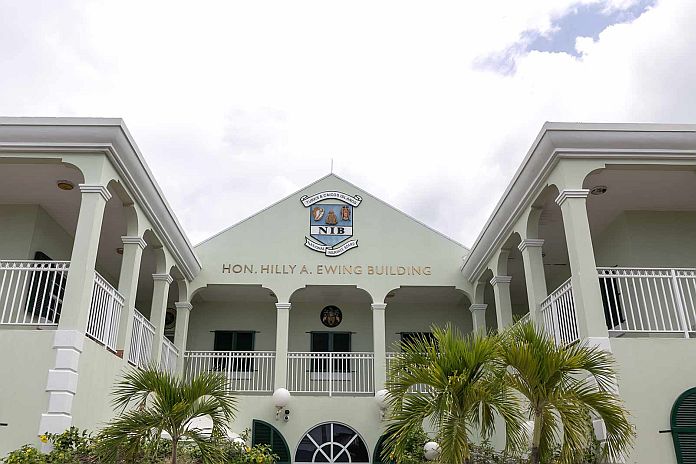By Caribbean News Global contributor
PROVIDENCIALES, TCI – Given the predictability that the Turks and Caicos (TCI) government is at the grip of a recession and the failure of the minister for finance Sharlene Cartwright Robinson to properly anticipate and make plans for financing the country and Governor of TCI, Nigel Dakin, pronouncements of the need for several hundred million dollars in borrowing, the cost for the new debt advisor has been revealed initially at $200,000.
The details of the arrangement have not been made public by either government. However, former finance minister and leader of the opposition Washington Misick, criticized Governor Dakin about his insistence that the territory borrow several hundred million.
“It is wrong for the Governor to support any major borrowing so close to an election while requesting Cartwright-Robinson to set the date for the polls,” said Misick. General election is constitutionally due by March 31, 2021; however, the parliament can be dissolved sooner or on the fourth-anniversary date of December 29, 2020.
Politically, the territory is still suffering from the cost of the Special Investigation and Prosecution Team (SIPT) and the costs for all defence lawyers in the ongoing court trials currently estimated at $100 million over the ten-year investigation and trial. Nevertheless, if the minister of finance and the British government find themselves at odds over the uses and purposes of the amounts the territory needs to borrow, including the further financing of the SIPT trials, the British government does have the constitutional power to formally install a chief financial officer which will then take all financial decisions for the country.
The calls for elections and no borrowing seems suspect by the leader of the opposition since both the Progressive National Party leader and his deputy have brothers which are before the courts for alleged corruption and would stand to benefit from mistrial declarations if the trials go unfunded. Funding for the trials are a direct charge on the TCIG consolidated fund.
For its part, the British government did repeal the chief financial officer ordinance, but can act unilaterally to borrow hundreds of millions through a financial advisor to the Governor, if the government refuses. However, this is considered an undesired and reluctant path by those at Foreign, Commonwealth and Development Office should the People’s Democratic Movement (PDM) government fail to soon confirm a serious financing plan.
Currently, the TCIG has only $2.2 million in direct borrowing according to its recently published financial report for July 2020, having missed what some in finance disclosed, “was a golden opportunity to create space in financing capacity during the good times”. The same report puts government revenue as being down by 50 percent before entering the traditionally slow season highlighting the minister of finance’s failure to capitalize on cheap borrowing options that were available over the last three years of her administration.
The reserves of the country are now fully encumbered and cannot be touched due in part to the British government’s guidelines. Reserves estimated at $140 million are not currently available to the TCI government without approval from the UK. The lack of borrowing, taxation and or revenue-raising measures place the country in a financial straight jacket. Reports from sources within the ministry of finance estimate the available cash position when considering the UK TCI guidelines are now less than $20 million at the beginning of October.
A consequence of the poor financial positioning, the minister of finance has advertently put at risk the country’s lauded BBB+ credit rating which could see movement from a stable to a negative outlook, due to the TCI now entering a recession along with other Caribbean jurisdictions. A negative credit rating outlook will increase the cost of borrowing for the territory, adding millions per year in debt servicing obligations for a loan the size that the Governor insists is necessary to avoid bankruptcy.
To further complicate matters, sources in London report that there is an austerity plan in the works including a directive to be issued “a cut to Turks and Caicos Islands Government (TCIG) salaries by 20 percent,” if financing negotiations are not acceptable to the British government.
The recent joint press conference seemed designed to allay any concerns over the handling of the Turks and Caicos finances, TCI Governor concluded by saying: “It’s at moments like this that the relationship with the UK move into the strategic. This Island is not going to go bankrupt.”





